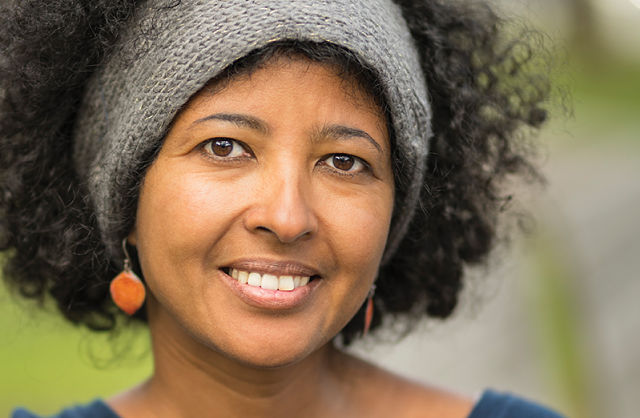 Dr. Rahel Nardos is connecting the University of Minnesota with low-resource locations to improve healthcare access. (Courtesy photo)
Dr. Rahel Nardos is connecting the University of Minnesota with low-resource locations to improve healthcare access. (Courtesy photo)
Minnesota Monthly Magazine
What do Minnesota’s Indigenous, immigrant, African American, and refugee communities have in common with women in low-resource countries around the world? They’re all chronically underserved by healthcare providers. So says Rahel Nardos, MD, the new director of global women’s health at the University of Minnesota’s Center for Global Health and Social Responsibility (CGHSR). And she aims to change that.
Nardos was born in Addis Ababa, Ethiopia. She came to the U.S. for college on a scholarship, then attended Yale Medical School, where she met her husband, Damien Fair, who was pursuing his PhD in neuroscience. They moved to Addis Ababa after completing their studies, where Nardos cared for women with obstetric fistulas, a devastating condition in which a hole forms in the birth canal following childbirth.
“Having grown up there and seen the scarce situation, where the quality of medical care and education was compromised, that planted the seed for me to want to figure out ways we can create better health systems and build capacities in low-resource settings,” says Nardos.
In Ethiopia, Nardos worked with victims of some of the world’s worst health inequities—including women ostracized from their communities due to a medical condition that was itself a result of inadequate obstetric and gynecological care. “That got me interested in specializing in urogynecology,” says Nardos, who pursued fellowship training and a master’s degree in clinical research at the same time. “I’m very interested in improving care through research.”
She went on to work with Kaiser Permanente and Oregon Health & Science University in Portland, where she founded Footsteps to Healing, a program that supports surgical care for women with injuries after childbirth.
In 2020, amid a global pandemic and widespread civil unrest, Nardos and Fair were jointly recruited by the University of Minnesota and made a new home in the Twin Cities. While Fair leads the U’s Masonic Institute for the Developing Brain, Nardos is bringing her trusted global partnerships to the table to help CGHSR form stronger and more effective relationships with healthcare programs and providers around the world.
“I’m also looking at how we can leverage our collective passion and experience in underserved care right here in our communities,” she adds. “We have people right here who don’t have access to quality care, such as immigrants and people with cultural practices that may compromise their health. We want to create programs that tap into our collective experiences, talents, passions, and partnership models to do meaningful work both globally and locally.”
Nardos is drawing on the U’s resources and expertise in areas spanning preventive care, health policy, leadership building, clinical capacity building, and advances in telehealth to improve care for women in low-resource settings. The goal? “To help support our partners and train our residents and fellows so they become providers who care about health equity and disparities, and are actively working to address it in their own communities,” says Nardos.
She’s even taking a mindfulness course at the U’s Center for Spirituality and Healing, and thinking about how to translate what she’s learning into cognitive strategies to help manage pain and irritative bladder symptoms in patients with urogynecological conditions.
Though she’s mining and connecting resources across a wide range of university programs, Nardos is crystal clear on her mission: to have a tangible impact in the lives of real, underserved women, far from the halls of academia. “How do we define success? We have to be careful not to define it academically—how many papers you publish or grants you get,” she notes. “How is it translating into improving health outcomes on the ground?”
—
Learn more about Dr. Nardos and the Center for Global Health and Social Responsibility at globalhealthcenter.umn.edu
Join the conversation on Twitter and Facebook.

























